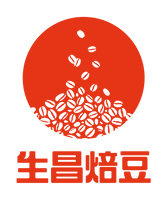洪都拉斯 Honduras

在過去的一個世紀裡,咖啡一直是洪都拉斯的主要出口產品之一(還有香蕉)。在 2009/10 年度,洪都拉斯生產了大約 360 萬袋阿拉比卡咖啡(已經比 1999/2000 有了很大的增長)。到 2014/2015 年,該國已成為中美洲最大的種植者(世界排名第七),產量超過 500 萬袋(全是阿拉比卡品種)。憑藉世界上最高的人均產量和各種商業驅動力下保持增長,專家們一致認為,在可預見的將來,該國產量達到 800 萬袋並不奇怪。總而言之,情況很清楚:洪都拉斯是一個優秀的咖啡生產國,擁有大量可開發的精品批次潛力。
如今,洪都拉斯有超過十萬個家庭從事咖啡生產。其中 95% 是小農,70% 的農場面積不到 2 公頃(約佔該國總產量的 30%)。絕大多數農民(95% 或更多)在農業和收穫勞動的各個方面都依賴家庭勞動力。也許最值得注意的是洪都拉斯生產者的平均年齡正在下降(這在中美洲是不尋常的,人口老化是咖啡的可持續性的長期的挑戰)。平均年齡為 46 歲的洪都拉斯咖啡農比 10 年前年輕了 10 歲。讓年輕人從事咖啡種植的幾個因素是一致的,包括洪都拉斯咖啡研究所 (IHCAFE) 的投資和推廣,以及洪都拉斯於精品市場方面的成功等。


除了內部和外部推廣外,IHCAFE 還為農民提供技術援助和培訓,幫助建立苗圃和溫室,建立了創新的害蟲管理和預警系統,並一直致力為生產者提供低息貸款購買加工設備。 2004 年,該組織幫助建立了一所國家杯測學校,為杯測師提供全面的培訓,並為年輕人提供在咖啡質量控制方面發展職業生涯的機會。

Throughout the past century, coffee has historically been one of Honduras’ leading exports (alongside bananas). During the 2009/10 crop year, Honduras produced approximately 3.6 million bags of Arabica coffee (already a big increase over 1999/2000). By 2014/2015, the country had become Central America’s top grower (and number 7 in the world), with a yield of over 5 million bags (all Arabica varietals). With the highest production per capita in the world and various business drivers keeping the industry growing, experts agree that it wouldn’t be surprising for the country to reach 8 million bags in the foreseeable future. All in all, the story is clear: Honduras is an excellent coffee-producing country with a plethora of untapped potential for specialty lots.
Today, more than 100,000 families across Honduras are involved in coffee production. 95% of these are small-scale farmers and 70% farm on fewer than 2 hectares (representing some 30% of the country’s total production). The vast majority of farmers (95% or more) rely on family labour for all aspects of agricultural and harvest labour. Perhaps most notable (and unusual for Central America, where an aging population presents real challenges to long-term sustainability for coffee), the average age of producers in Honduras is falling. With an average of 46 years old, the composite Honduran coffee farmer is 10 years younger than they were 10 years ago. Several factors have aligned in keeping younger people in coffee, including investment and promotion by the Honduran Coffee Institute (IHCAFE) and Honduras’ success in accessing specialty markets.
In addition to internal and external promotion, IHCAFE offers technical assistance and training to farmers, helps with establishing nurseries and greenhouses, has established innovative pest management and early warning systems, and has been working on a project to provide producers access to low interest loans to buy processing equipment. In 2004, the organization helped set up a national cupping school, which provides comprehensive training for cuppers and gives young people the opportunity to build a career in coffee quality control.
